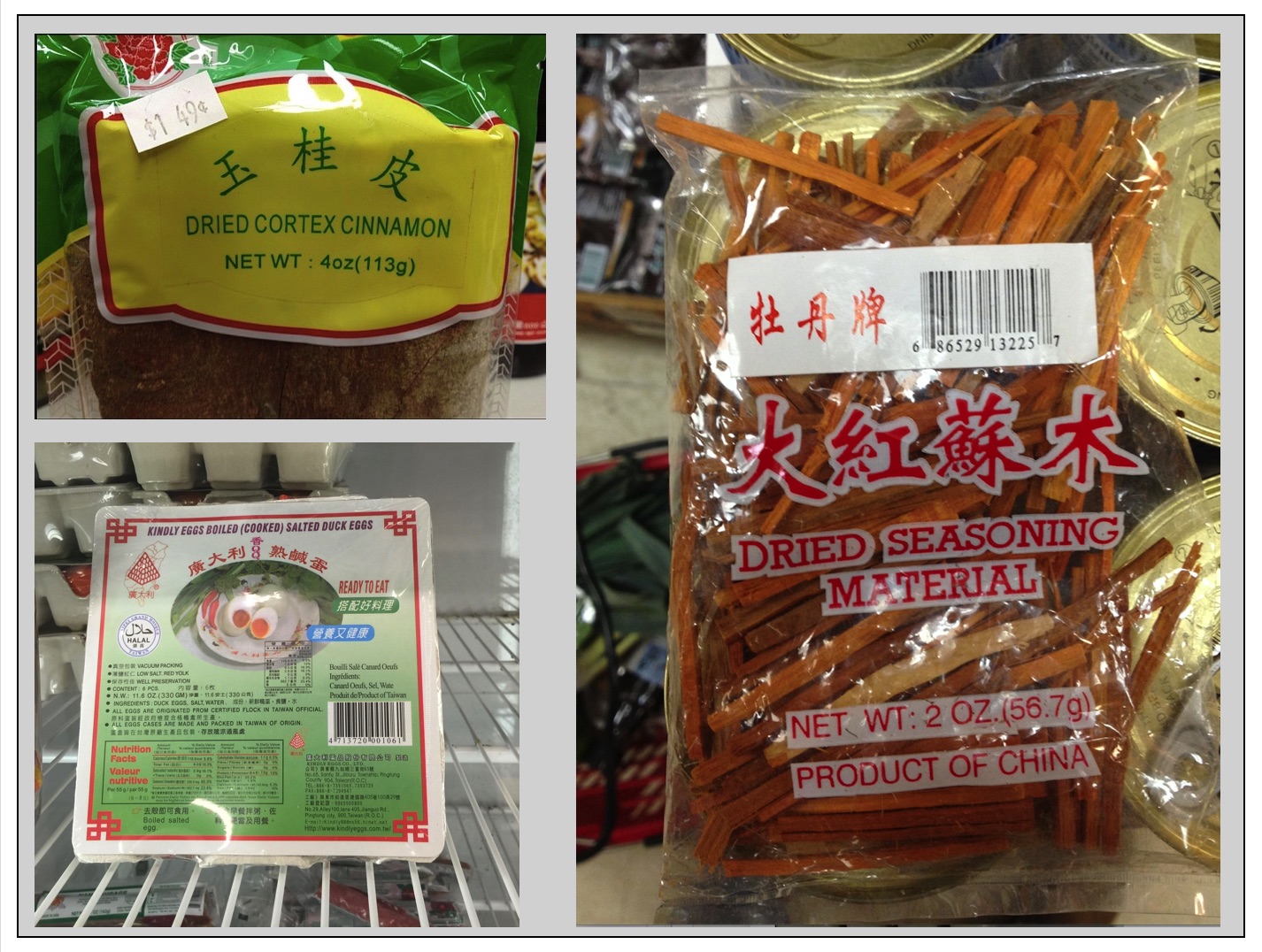Archive for Names
Guys and gals: Or, why the "Chinese" are called "Han"
In the comments to "Easy versus exact" (10/14/17), a discussion of the term "Hànzi 汉子" emerged as a subtheme. Since it quickly grew too large and complex to fit comfortably within the framework of the o.p., I decided to write this new post focusing on "Hàn 汉 / 漢" and some of the many collocations into which it enters.
To situate Language Log readers with some basic terms they likely already know, we may begin with Hànyǔ 汉语 ("Sinitic", lit., "Han language"), Hànyǔ Pīnyīn 汉语拼音 ("Sinitic spelling"), and Hànzì 汉字 ("Sinograph, Sinogram", i.e., "Chinese character"). All of these terms incorporate, as their initial element, the morpheme "Hàn 汉 / 漢". Where does it come from, and what does it mean?
Read the rest of this entry »
East Asian Trumponyms
Last year, we looked at various transcriptions of Trump's surname:
- "Trump translated" (8/31/16)
- "Transcription of 'Barack Obama', 'Hillary Clinton', and 'Donald Trump' in the Sinosphere" (10/2/16)
- "Chinese transcriptions of Donald Trump's surname" (11/23/16)
Now, in "Why China Won’t Pressure North Korea as Much as Trump Wants," New Yorker (Sept. 19, 2017), Evan Osnos writes:
Chinese intellectuals have taken to joking that “Telangpu”—which is one of the Chinese pronunciations of Trump’s name—sounds like “te meipu,” which means clueless or lacking a plan.
Read the rest of this entry »
Permalink Comments off
Hurricane naming policy change
I think it's becoming clear that alternating male and female personal names to individuate Atlantic tropical cyclones is not a good idea. These storms are becoming far too nasty. Calling a storm "Harvey" makes it sound like your friendly uncle who always comes over on the Fourth of July and flirts with your mom. And "Irma" sounds like a dancer that he once knew when he was in Berlin. Science tells us that these devastating meteorological events are probably going to get worse in coming years. (Ann Coulter says that as a potential cause of increased violence in hurricanes, climate change is less plausible than God's anger at Houston for having elected a lesbian mayor; but let's face it, Ann Coulter is a few bricks short of a full intellectual hod.) Hurricanes need uglier names. You can't get Miami to evacuate by telling people that "Irma" is coming.
Accordingly, next year the National Hurricane Center is planning to name tropical cyclonic storms and hurricanes after unpleasant diseases and medical conditions. Think about it. The state governor tells you a hurricane named Dracunculiasis is coming down on you, you're gonna start packing the station wagon. So as the season progresses, the following will be the named storms in 2018.
Read the rest of this entry »
Permalink Comments off
"Donald" in Scottish Gaelic
A one-second audio of "Dòmhnall".
It's the <mh> that nasalizes the vowel. Supposedly this nasalizing effect is still found in some Irish Gaelic.
If you have 4 minutes, a great animation of a folktale in Nova Scotia Gaelic with a main character named "Dòmhnall". Very peculiar sounding!
Read the rest of this entry »
Chinese Trumpistas
Their legions grow with each passing day. This post is about what they are called in Chinese (see below).
The Chinese people were fascinated with Trump even before he was sworn in as POTUS:
"Year of the cock" (1/4/17)
See also the references in the second half of the third post cited below.
Now that Trump has been President for more than four months, he is all the more popular among certain segments of the Chinese population. Even top politicians who are jockeying for power at the 19th Party Congress to be held this fall are modeling themselves after Trump:
"China’s Leadership Reshuffle 2017: Rising Stars; How China’s regional chiefs use Trump tactic in race for top" (Choi Chi-yuk, SCMP, 6/3/17)
One mentioned Communist Party chief Xi Jinping’s name 26 times in a speech, another mentioned poverty 90 times
Read the rest of this entry »
From "barbarian" to "very"
Earlier this week, I wrote a post titled "'Little Man' the eating machine" (5/22/17), in which I pointed out that "Man" here does not mean "(hu)man" or "male human", but that it signifies "(southern) barbarian", with extended meanings of “rough; reckless; fierce; rude; unreasoning; unruly; bullying”. I also noted that this mán 蛮 has another set of meanings: "quite; rather; somewhat; very".
In the sixth comment to the post, liuyao wrote:
I was hoping VHM would do a linguistic/philological analysis of 蛮 in the sense of “very”. Given that it was originally a derogatory term for “barbarians” in the south (possibly Austroasiatics that have long been displaced or assimilated), how did it come about that the southern topolects (or when they speak their variants of Mandarin) have this character or word for “very”? Are there alternative characters for this morpheme?
I will now attempt to answer all of liuyao's questions.
Read the rest of this entry »
"Little Man" the eating machine
There's a curious article by Kathy Chu and Menglin Huang in the Wall Street Journal (5/21/17):
"How a Toddler Who Loves Eating Transfixed China: 2½-year-old Xiaoman is an online sensation, bringing fame, a Pampers ad and questions about her weight"
https://www.wsj.com/articles/how-a-toddler-who-loves-eating-transfixed-china-1495387268
If you have difficulty reading the whole article via the embedded link, try this TinyURL, which should lead you to a complete preview.
Read the rest of this entry »
BARF (Belt and Road Forum) 2.0
[This is a guest post by the inimitable satirist, S. Tsow]
[1.0 is this: "BARF (Belt and Road Forum)" (5/19/17)]
Xi Jinping ("Mr. Eleven" [XI]) calls his New Silk Road initiative "One Belt, One Road" (Yidai-Yilu). A map I have shows a land route in the north, going westward, bifurcating at Urumchi, and ending at Rotterdam and Istanbul. OK, that's the "belt". The "road" shows a sea route in the south that wanders all over the place and ends in the west at Venice.
Read the rest of this entry »
BARF (Belt and Road Forum)
We are currently in the midst of a massive propaganda barrage unleashed upon the world by the People's Republic of China. It's all about something that started out being called "Yīdài yīlù 一帶一路" ("One Belt One Road"), at least that's what it was named when I first heard about it a year or two ago. The Chinese publicists writing about it in English may have just styled it "The Belt and Road", but everybody I know spoke of it as "One Belt One Road" — "OBOR" for short, which reminded me of Über.
Read the rest of this entry »
English names in East Asia
We have had thousands of students from China, Taiwan, Hong Kong, and Singapore enrolled as undergraduates and graduate students at Penn. To name just a few at random, there are Andromeda, Tess, Sophie, Isis (but she changed it to Iset after finding out about the Islamic terrorist state), Leander, Lovesky, and so on. I won't speculate on why they choose the names they do (and, of course, there are plenty of students named David, Peter, Henry, Susan, Nancy, Jane, and even an occasional Carlos, etc.), but the fact remains that almost every student from the Sinosphere who applies to Penn has an English name of one sort or another. Many of them, prodded by their American teachers or friends, give up these foreign names after a while, or they use their Chinese names and English names in different circumstances.
The same is true for Korea, and it seems to an even greater degree, such that in some circles in Korea, having an English name is obligatory:
"Why Korean companies are forcing their workers to go by English names" (WP, 5/12/17)
Read the rest of this entry »

